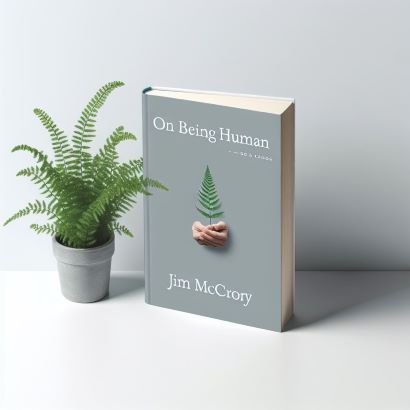"As they walked, Jesus wept."
The Voice, John 11:33.

Image generated with the assistance of Microsoft Word
Is There a Place for the Emotionally Sensitive in Society?
At the weekend I met a lovely warm-hearted Nepalese couple. As usual is the case, when I meet friends from other cultures I find out the words that are unique to their society —— see my January 4 post Good Evening Bangladesh! What Will Our Journey Be? | learn1
In the Nepalese language and culture, there is a beautiful phrase: mano saano—which translates to "a small heart," referring to those who feel deeply, who are moved by the world in ways others are not. It is not a phrase of weakness but of recognition, an acknowledgment that some souls are more attuned to the joys and sorrows around them.
I have always been one of these people. From childhood, I felt the weight of the world in ways I could not explain. I would walk through a grave yard and feel the pain of the parents who lost their child a century ago. I would sense the tension in a room before a word was spoken, absorbing emotions that were not my own.
When I first heard about the Nepalese word mano saano, it resonated deeply—here was a concept that named the experience of having a heart that was more porous than most, one that could not help but feel.
But in a society that values resilience, efficiency, and rationality, what place is there for those of us with small hearts?
The modern world often feels like a race where sensitivity is a liability. We are expected to toughen up, to "not take things personally," to brush off slights and injustices as if they are trivial. Corporate culture prizes those who can detach, make decisions without emotion, and push forward without dwelling on the past. Social life, too, can be unkind to the sensitive—where cynicism is mistaken for intelligence and where expressing deep emotions is often met with discomfort or dismissal.
Yet, for the emotionally sensitive, detachment is not an option. We do not simply decide to stop feeling. We experience life in high definition, where every act of kindness or cruelty leaves a lasting imprint. The world tells us to be less sensitive, but to do so would mean to become less ourselves.
Being emotionally sensitive can feel like a burden. It means being easily overwhelmed by the pain of others, feeling the suffering in the world so acutely that it can become paralyzing. It means struggling with boundaries, as people who sense and soothe emotions often attract those who take advantage of their kindness. It can be exhausting to walk through life without the protective shell that others seem to wear so naturally.
And yet, despite the weight of sensitivity, it is also a gift. The world needs people with mano saano — those who care deeply, who notice the suffering that others overlook. They are the ones who sit with the grieving, who offer quiet kindness in a world too busy to care. They are the poets, the writers, the artists, the caregivers— the ones who give voice to emotions that others struggle to articulate.
Jesus himself was deeply sensitive, weeping at the suffering he saw, moved by the pain of the people around him. He did not harden himself against sorrow but embraced it, showing that true strength is not found in indifference, but in a love so deep it refuses to look away.
If there is a place for the emotionally sensitive in society, it is one that must often be carved out. It requires choosing environments where sensitivity is not dismissed as weakness but recognized as a strength. It means surrounding oneself with those who appreciate depth rather than fear it. It also means learning to set boundaries—to recognize that while sensitivity is a gift, it is not meant to be exploited.
The world may not always make space for those with small hearts, but that does not mean we must shrink to fit it. Instead, we must create lives that honour our depth of feeling, knowing that, in a world that often forgets to care, sensitivity is a rare and precious thing.
There may not be an easy place for the emotionally sensitive in society, but there is purpose. And sometimes, that is enough.
Reference
The Voice Bible. Ecclesia Bible Society, 2012.
Comments
New comment
Very encouraging
New comment
Many thanks for your encouraging comments, Hannah.